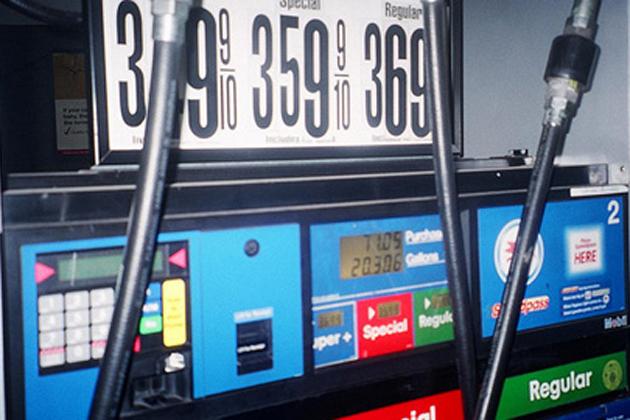
By Ron Ulmer
When the price of gasoline increases we complain about greedy BIG OIL colluding to fix price. When the price of gasoline decreases, we become giddy. We hear news reports claiming the gas price decrease is equal to X dollar income increase.
What else happens when the gas price decreases? At lower prices we drive more miles, traffic congestion increases, we create more air pollution, we have more accidents with more vehicle deaths, up 19% nationally and 24% in Illinois January through June of this year. We purchase pickup trucks and mid-sized SUV’s that get lower gas mileage than the vehicles replaced. At lower gasoline prices, commuter rails, buses, and Amtrak lose passengers thereby generating less revenue requiring more taxpayer support. After years of increasing public transportation ridership due to high gasoline prices, the large decrease in the gasoline price in the past year has led to decreased ridership with people switching back to their vehicles.
In the latest transportation bill, Congress had included the first Federal gasoline tax increase in nearly two decades, but because it is an election year, the gas tax increase was removed from the bill. A gas tax increase could be phased in adding4 or 5 cents per gallon annually over several years. Phasing in the tax increase would raise the price of gasoline with minimal economic impact. However we would drive fewer miles with less pollution, less congestion, and fewer traffic deaths.We would increase public transportation ridership and revenue, thereby diminishing the need for taxpayer subsidies.
A gas tax increase is the only tax increase I support, if and only if the increased revenue is limited to transportation infrastructure. Compare the results of a gas price increase to government imposed rules and regulations such as mileage standards, pollution standards that VW falsified for years, and a gas guzzler sales tax. These regulations only affect the purchase decision. They do not impact the trip choices, such as using public transportation or driving or to make or not make the trip, nor do they provide increased revenue to maintain transportation infrastructure, road, city buses, commuter railroads or Amtrak. I hope the new Congress has the courage to approve a gradual gas tax increase leading to fewer traffic accidents and related deaths, less congestion, less pollution, all while generating revenue to improve transportation infrastructure.
Ron Ulmer is an economist, have taught economics/finance at 3 central Illinois universities and employed by Illinois Power as a Senior Rate Analyst, supervisor of economic research, Market Program Manager. Now retired, Current member Normal Kiwanis, past 25 year member Optimist International Service Club, Property owner and manager in Normal for 37 years ongoing.
The opinions expressed within WJBC’s Forum are solely those of the Forum’s author, and are not necessarily those of WJBC or Cumulus Media, Inc.






